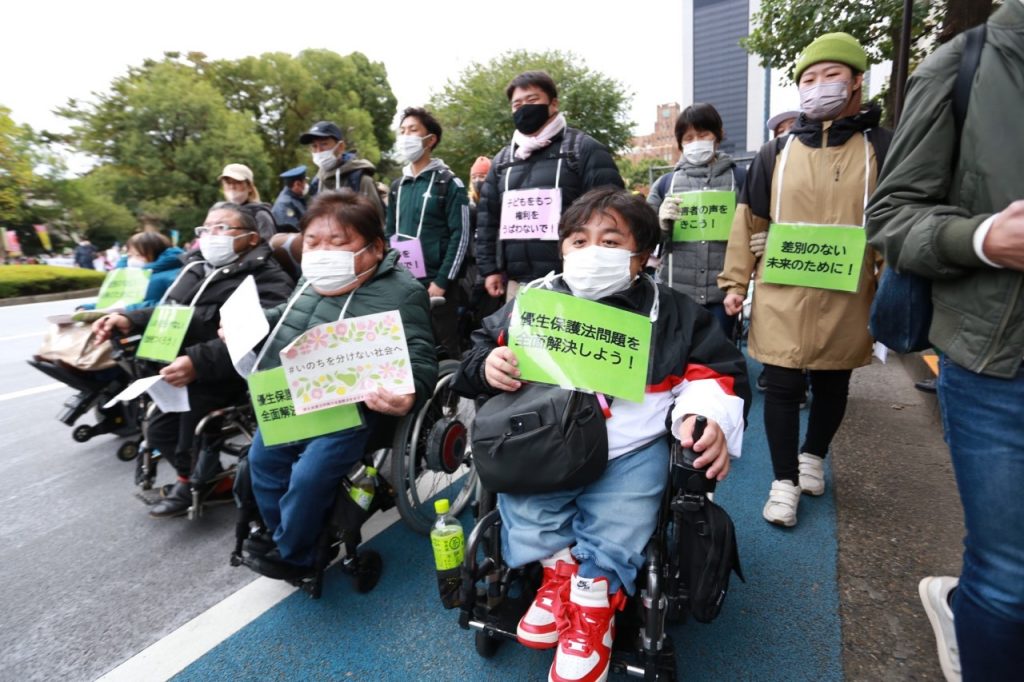Supreme Court rules forced sterilisations unconstitutional, urges compensation for victims
In a historic decision, Japan’s highest court rules in favour of victims. Almost 25,000 people with disabilities or chronic illnesses sterilised between 1948 and 1996 can now obtain compensation of almost US$ 20,000 each, but the real battle is for dignity.
Tokyo (AsiaNews) – The Supreme Court of Japan (SCJ) has declared unconstitutional a controversial eugenics law that saw more than 16,500 disabled people forcibly sterilised between the 1950s and 1990s.
The SCJ also ordered the government to pay damages to 11 victims, who were involved in five cases that were heard on appeal.
The landmark ruling, which came today after a long legal battle, puts an end to the decades-long struggle to obtain justice for the victims, who in addition to the money also want a public apology from the authorities.
After years of lawsuits, a 2019 law finally granted surviving victims compensation, but some continued he struggle to get a higher sum.
In four of the cases brought to court, the central government had appealed against the lower courts' compensation orders.
In the fifth case, two women had appealed against the dismissal of their claims, with the lower court citing the statute of limitations
Nearly 25,000 people with disabilities or chronic illnesses were sterilised in Japan between 1948 and 1996 under a eugenics law, which was repealed that year.
At least 16,000 operations were allegedly carried out without consent on minors, including two nine-year-old children, a boy and a girl.
The data, which highlight the widespread use of the practice in the past, are contained in a 1,400-page report published in June last year and presented to the Japanese parliament, sparking controversy and discussions.
Although authorities say that an additional 8,500 people consented to the procedure, lawyers said they were "de facto forced" to undergo the surgery due to the pressure they faced at the time.
The SCJ also ruled that the 20-year statute of limitations cannot be applied to claims for compensation in cases of forced sterilisation.
Lawyers argued that the application of the statute of limitations would have prevented some of the victims from seeking justice, especially those sterilised without their knowledge who became aware of the surgery too late compared to the deadline set by law.
Forced sterilisations were most prevalent in the 1960s and 1970s, during the postwar baby boom.
Many of those forcibly sterilised had physical and intellectual disabilities, mental health problems, or chronic illnesses such as leprosy.
Physical restraint, anaesthesia, and even "deception" were allowed for these operations.
According to a law passed in 2019 following one of the lawsuits, surviving victims can receive up to 3.2 million yen (just under US$ 20,000) each.
Since then, around 1,300 people have applied and 1,100 have been compensated, but for some of the victims, the amount of money can go only so far.
“When I found out I realized I could never be a mother... It broke my heart," lamented Yumi Suzuki, speaking to the BBC in a 2021 interview.
The 68-year-old, who was born with cerebral palsy and forcibly sterilised when she was just 12, is among 11 plaintiffs whose case has been taken to court.
"I don’t want money,” she said. “I want people to know what happened to us. To make sure it never happens again. I want disabled people to be treated equally. We are not things. We are human beings.”
26/02/2022 14:51
15/03/2018 12:52







.png)










